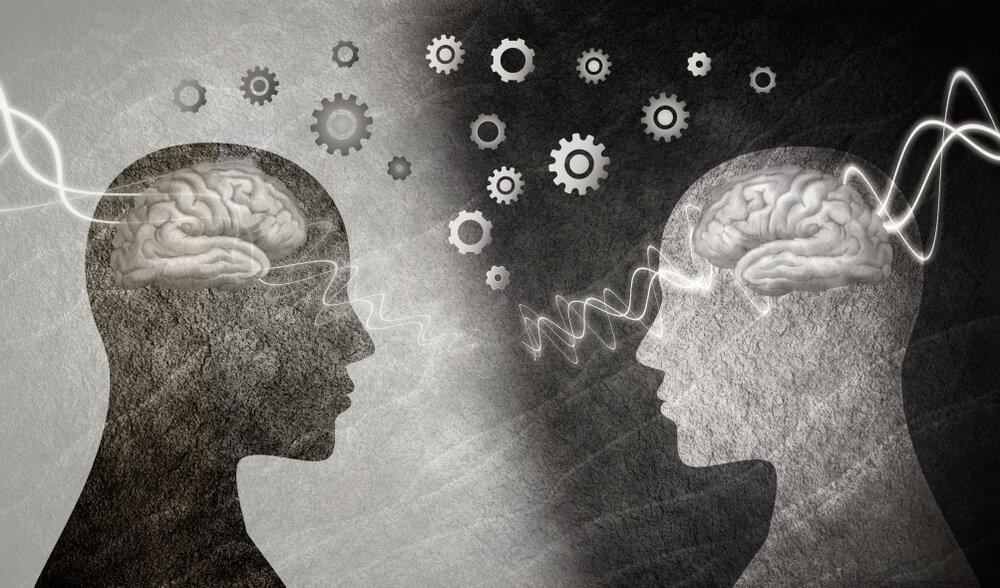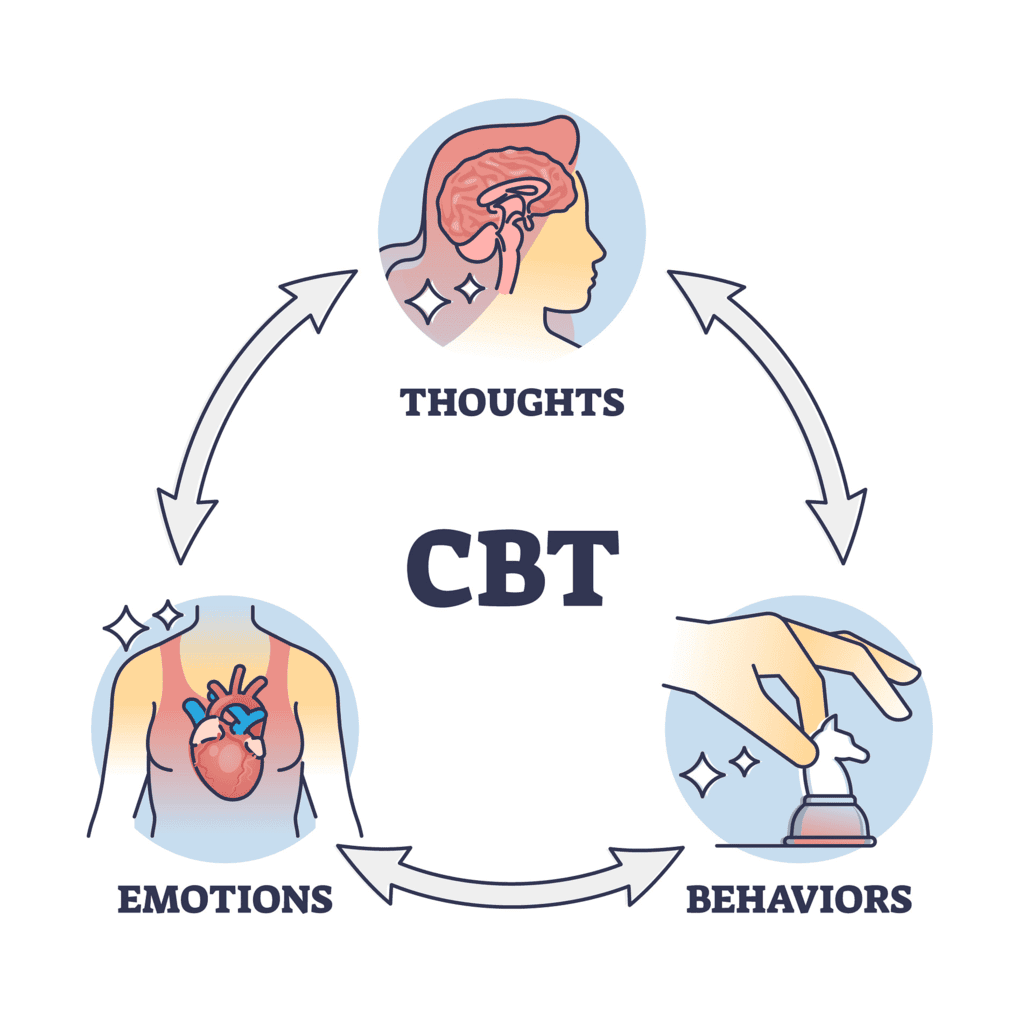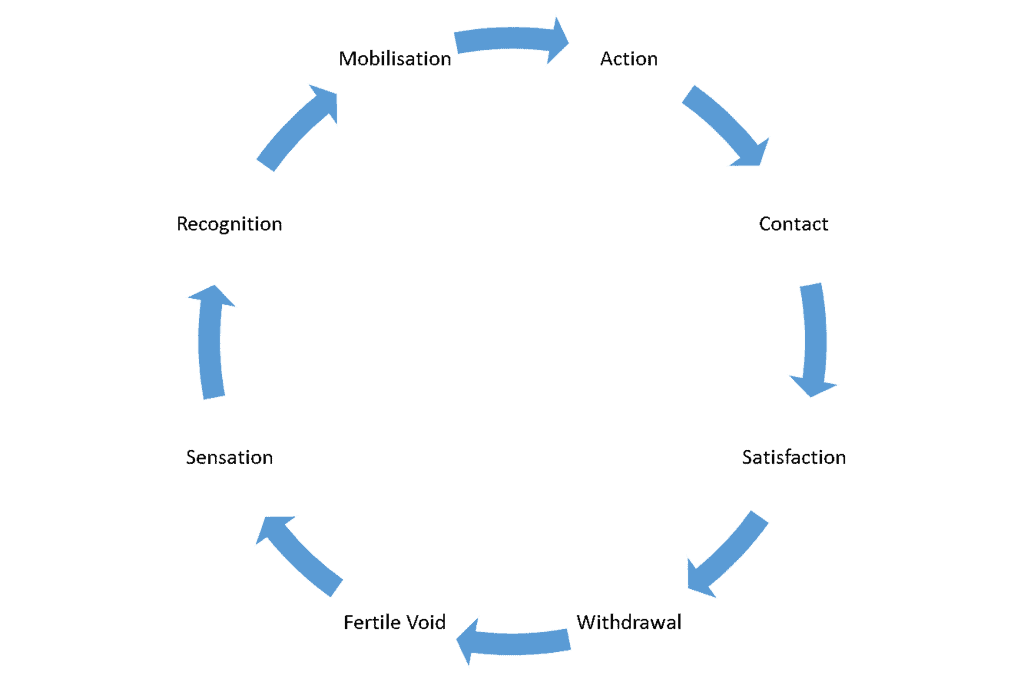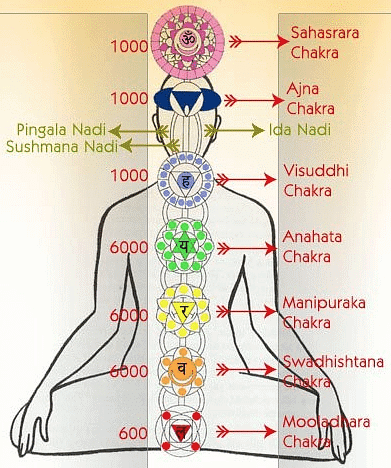(Part - 2) - Therapeutic Approaches Class 12 Psychology
Cognitive Therapy
Cognitive Therapy is a form of psychotherapy that focuses on identifying and changing negative thought patterns and beliefs. It is based on the idea that our thoughts, rather than external events, cause our feelings and behaviors. Cognitive therapy aims to help individuals recognize and modify their negative patterns of thinking, ultimately leading to more positive emotions and behaviors.

- The main techniques used in cognitive therapy include identifying and challenging negative thoughts, developing more realistic and positive thoughts, and practicing new behaviors that align with these thoughts. Cognitive therapy can be used to treat a range of mental health conditions, including anxiety disorders, depression, and post-traumatic stress disorder.
- One of the core principles of cognitive therapy is that individuals have the ability to change their own thought patterns and beliefs. This is often accomplished through a collaborative therapeutic relationship between the therapist and client, in which the therapist helps the client to identify and modify their negative thoughts.
- Cognitive therapy has been shown to be an effective treatment for a range of mental health conditions, and is often used in combination with other therapies, such as medication and behavioral therapy. It is a time-limited therapy, typically consisting of 12-20 sessions, and is often used as a first-line treatment for mild to moderate mental health conditions.
Cognitive Behaviour Therapy
- Cognitive Behaviour Therapy (CBT) is a form of psychotherapy that focuses on identifying and changing negative thought patterns and behaviours that contribute to psychological distress. It is based on the premise that our thoughts, feelings, and behaviours are interconnected, and that by changing the way we think and behave, we can improve our emotional wellbeing.

- CBT is a collaborative process between the therapist and the client, where the therapist helps the client to identify and challenge negative thoughts and beliefs that may be contributing to their distress. The therapist then works with the client to develop more adaptive ways of thinking and behaving, which can help to alleviate psychological symptoms and improve overall functioning.
- CBT is typically a short-term, time-limited therapy, and sessions are usually structured and focused on specific goals. Some common techniques used in CBT include cognitive restructuring, behavioural activation, and exposure therapy.
- Cognitive restructuring involves identifying and challenging negative thoughts and beliefs, and replacing them with more positive and realistic ones. This can help to reduce feelings of anxiety, depression, and other negative emotions.
- Behavioural activation involves identifying and engaging in positive activities and behaviours that can improve mood and increase feelings of enjoyment and accomplishment.
- Exposure therapy involves gradually exposing the client to feared situations or objects in a safe and controlled environment, in order to help them overcome their fears and anxieties.
- CBT has been shown to be effective in treating a range of psychological disorders, including anxiety disorders, depression, post-traumatic stress disorder (PTSD), and obsessive-compulsive disorder (OCD).
Humanistic-Existential Therapy
Psychological distress often arises from feelings of loneliness, isolation, and a sense of lacking purpose and responsibility in life.
The key principles of existential therapy are as follows:
- Human beings have an innate desire for personal growth and reaching a state of self-actualization, which means achieving a sense of balance and integration in life.
- Complete emotional expression is necessary for self-actualization, but societal norms often discourage it, as it may involve negative emotions such as anger or sadness.
- Humanistic therapy creates a non-judgmental and permissive environment for clients to express their emotions freely.
- The therapist acts as a facilitator rather than a directive authority, and the success of therapy depends mainly on the client's willingness to engage in the process.
- Existential Therapy, also known as Logotherapy, was developed by the psychiatrist and neurologist Victor Frankl. The therapist's main objective is to assist the client in discovering meaning and purpose in their life, regardless of their circumstances, through a process called meaning-making.
Client-Centered Therapy
- Carl Rogers developed client-centered therapy, which emphasizes the importance of establishing a warm relationship with the client to help them reconnect with their fragmented emotions.
- The therapist provides three key elements: unconditional positive regard, which means accepting the client as they are without judgment; empathy, which involves understanding the client's perspective and problems; and creating a secure environment, which helps clients feel safe and supported.
Gestalt Therapy
- Gestalt, a German term for 'whole', refers to a therapeutic approach developed by Freiderick (Fritz) Perls and Laura Perls.
 Gesalt Therapy
Gesalt Therapy - The primary aim of gestalt therapy is to enhance an individual's self-awareness and self-acceptance.
- Clients are guided to identify bodily sensations and emotions that are usually suppressed from consciousness.
- Therapist's Role: Therapists facilitate this process by encouraging clients to express and act out their emotions and conflicts.
- Gestalt therapy can be employed in both individual and group therapy settings.
Biomedical Therapy
Mental disorders can be treated with medication, which is typically prescribed by psychiatrists - medical professionals who specialize in the diagnosis and treatment of mental health conditions. Biomedical therapy involves the use of drugs to treat these disorders, with the following key features:
- Severe disorders like schizophrenia and bipolar disorder may require antipsychotic medications, while milder drugs may be used for conditions like generalized anxiety disorder or depression.
- Medication should only be given under medical supervision, as it can have side effects.
- Electroconvulsive therapy (ECT) is a form of biomedical therapy that involves inducing convulsions in the patient's brain through electric shock administered via electrodes. This treatment is typically only used when medication is ineffective in controlling the patient's symptoms and is not a routine treatment.
Factors Contributing to Healing in Psychotherapy
The success of psychotherapy depends on various factors, including the therapist's techniques and approach. Some of the factors that contribute to healing in psychotherapy are:
- The therapeutic alliance between the therapist and the client is critical, as the client's healing depends on the warmth and empathy provided by the therapist.
- The process of complete emotional expression, known as catharsis, is also essential for healing.
- Other non-specific factors, such as patient variables like motivation for change and expectation of improvement due to therapy, as well as therapist variables like warmth and positivity, can also play a role in the healing process.
Ethics in Psychotherapy
- Psychotherapy, like any other profession, requires individuals to follow certain ethical guidelines.
- The ethical standards that psychologists need to abide by include obtaining informed consent, showing respect for human rights and dignity, maintaining the confidentiality of the client's issues, possessing professional competence and skills, prioritizing the alleviation of the client's personal distress, and maintaining the integrity of the practitioner-client relationship.
Alternative therapies
The main categories of alternative therapies are Yoga and Meditation, which can be further explained as follows:
- Yoga has become increasingly important over the last 25 years and involves practicing Asanas, Breathing techniques, or both. The two most popular forms of yoga are Sudarshan Kriya Yoga and Kundalini Yoga.
- Sudarshan Kriya Yoga is a low-cost and beneficial treatment for stress, anxiety, and post-traumatic stress disorder. Research conducted at the National Institute of Mental Health and Neurosciences in India has shown that Sudarshan Kriya Yoga can improve mood, well-being, and mental state. Kundalini Yoga is considered effective in treating mental disorders.
 Kundalini Yoga
Kundalini Yoga - The Institute of Nonlinear Sciences at the University of California, San Diego, has found that Kundalini Yoga is an effective treatment for obsessive-compulsive disorder. It involves practicing Pranayama and chanting Mantras.
- Meditation is a set of techniques that help improve focus, attention, and alter consciousness by focusing on the inner self. Mindfulness meditation is particularly helpful in improving focus, treating depression, and processing stimuli effectively.
Rehabilitation of Mentally ill
- There are two components to treating psychological disorders: reducing symptoms and improving quality of life. While these points apply to mild problems such as Generalised Anxiety Disorders (GAD), they are not applicable to severe disorders like schizophrenia.
- Rehabilitation aims to empower clients to become productive members of society. This involves occupational therapy, social skills training, vocational therapy, and cognitive training.
- In occupational therapy, clients learn work skills such as weaving and paper making.
- Social skills training teaches clients interpersonal skills like empathy, communication, and cooperation. Vocational therapy focuses on teaching employability skills to clients.
- Finally, in cognitive training, patients learn cognitive skills such as decision-making and memory.
FAQs on (Part - 2) - Therapeutic Approaches Class 12 Psychology
| 1. What are some common therapeutic approaches used in the rehabilitation of mentally ill individuals? |  |
| 2. How does cognitive-behavioral therapy help in the rehabilitation of mentally ill individuals? |  |
| 3. What is the role of medication management in the rehabilitation of mentally ill individuals? |  |
| 4. How does social skills training benefit mentally ill individuals in their rehabilitation process? |  |
| 5. How can support groups aid in the rehabilitation of mentally ill individuals? |  |






















